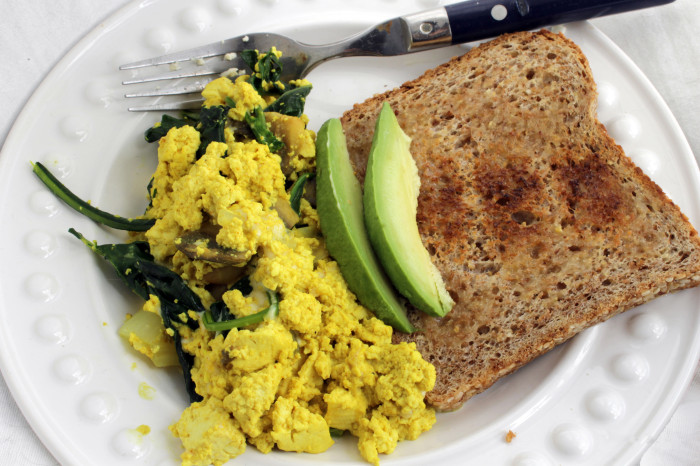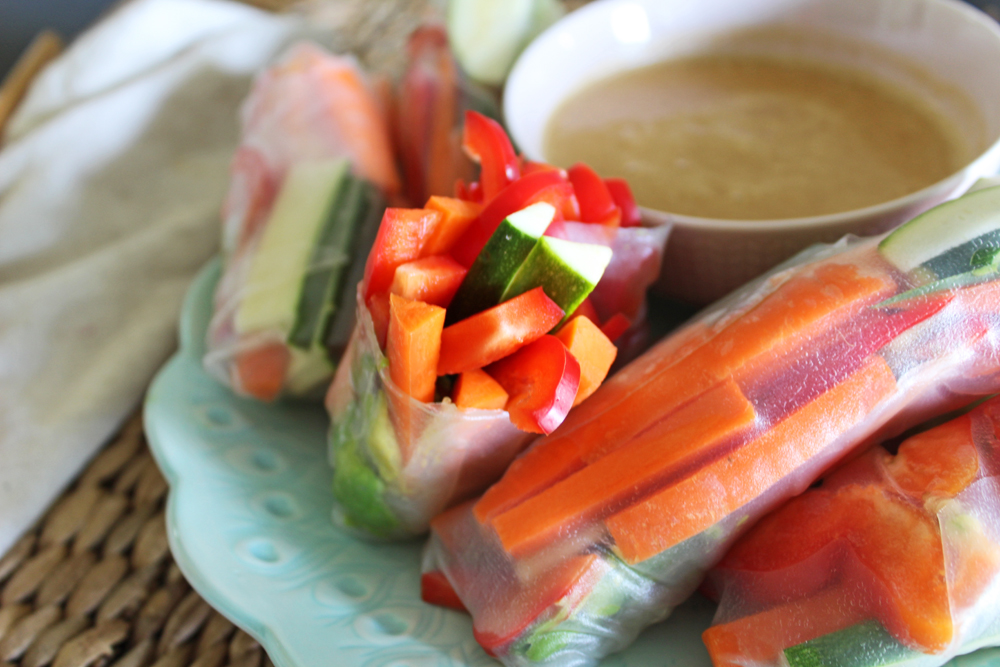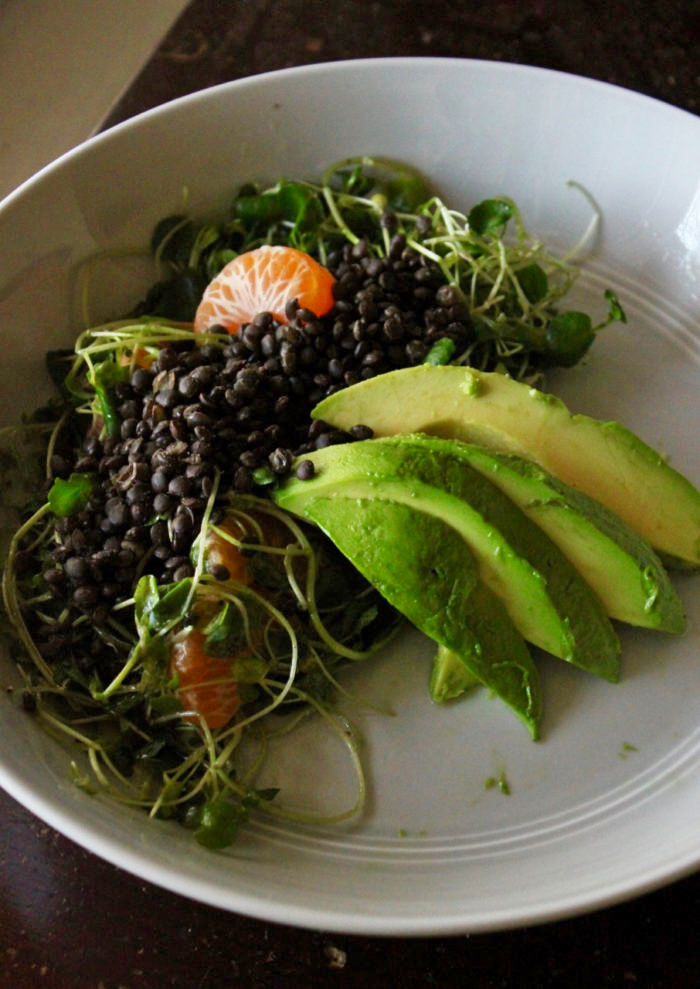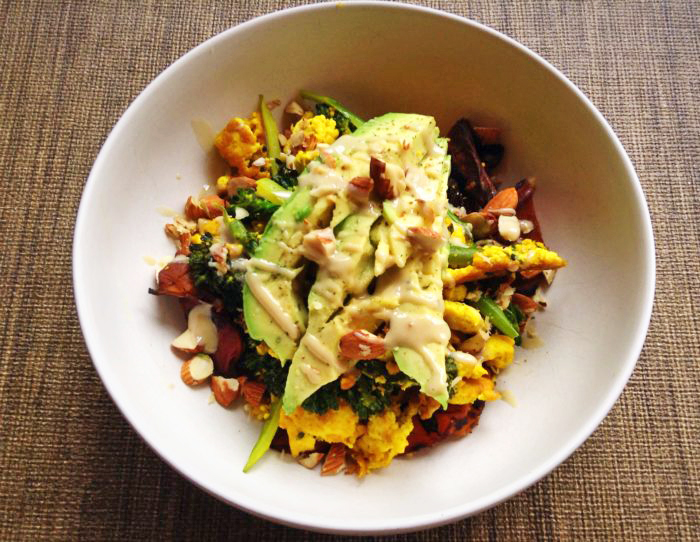Saturated vs. trans fats? Omega-6 and omega-3 ratios? LDL cholesterol? Unless you’re a nutritionist or dietician, your eyes probably just glazed over from all that scientific jargon. It’s certainly true for me: as much as I love healthy eating, I find it difficult to parse out all the conflicting nutritional advice these days–in fact, I’ve started ignoring it altogether. That’s an embarrassing admission for me, since I pride myself on living a healthy, plant-based lifestyle, but it’s true. These days, the hot topic of discussion seems to be around fat.
Thankfully, the discourse has evolved from talk about avoiding fat completely and now seems to be about which fats provide health benefits, rather than questioning the nutritional value of fat itself (spoiler alert: fat is good for you!). But that still leaves the question: Which fats should I eat?
If you’re interested in eating a healthy plant-based diet but don’t want to fuss too much with the good fat vs. bad fat minefield, here’s a little cheat sheet to help you eat well sans stress.
What Kinds of Fats Should You Be Eating?
Trans fats are bad. Think french fries, butter, microwave popcorn, doughnuts…the list goes on. Sometimes food manufacturers are sneaky and list trans fat as “partially hydrogenated oil” on ingredient lists. This type of fat boasts zero health benefits and can lead to inflammation that’s been linked to chronic conditions like heart disease and stroke. One easy way to avoid trans fat is to simply limit the amount of processed food you consume.
Saturated fats are good (in moderation). These types of fats become solid at room temperature and include common kitchen staples like dairy products and coconut oil. There’s been a lot of debate around coconut oil this year, namely that it increases HDL and LDL cholesterol, the latter of which has been linked to an increased risk of heart disease. However, some experts say that coconut oil is still okay to consume if used sparingly.
Monounsaturated and Polyunsaturated fats are good. These are the types of fats that can and should be consumed daily. Monounsaturated fats include olive oil, peanut oil, avocados, most nuts; polyunsaturated fats include flax seeds, walnuts, canola oil, and unhydrogenated soybean oil. As far as polyunsaturated fats are concerned, there are two main types: omega-6 and omega-3 fatty acids. While both types have been shown to protect against heart disease, experts say that the average ratio omega-6:omega-3 consumption in Western diets is around 15:1 – a ratio that has been linked to many chronic diseases. By reducing this ratio to 4:1, studies show that it’s possible to prevent or reverse such diseases.
Now that we have a basic understanding of which fats to consume, here are some ideas for incorporating them into your daily meals.
Breakfast

Caramelized Banana Bread Oatmeal – Pile on the walnuts for an omega-3 boost first thing in the morning!

Saturday Morning Tofu Scramble – Use vegan butter or swap for olive of avocado oil, and toss in some chopped kalamata olives during the last few minutes of cooking.
Lunch

Vegetable Rolls With Thai Peanut Sauce – Delicious, easy, and a great way to get in some monounsaturated fats via peanuts.

Vegan Winter Salad – This recipe has an olive oil dressing that provides a good source of monounsaturated fats.
Dinner

Creamy Vegan Vegetable Curry – Containing coconut milk and coconut oil, this recipe provides a good dose of saturated fats (remember, these are good in moderation!).

Sweet Potato Avocado Zen Bowl – This bowl has avocado…need I say more? 😉
Note: I am not a nutritionist or dietician, and you should always speak with your doctor before making significant changes to your diet.
What are your favorite healthy fats?
Also by Molly: Vegan S’mores Brownies
Related: 4 Things I Did to Lose 135 Pounds without Ever Being Hungry
Carb Loading Tips from a Vegan Nutritionist
Get more like this—Subscribe to our daily inspirational newsletter for exclusive content!
__
Photo: Lauren Sacerdote, Peaceful Dumpling, Mary Hood Luttrell, Molly Lansdowne, Jennifer Kurdyla, Kathryn Farrugia
